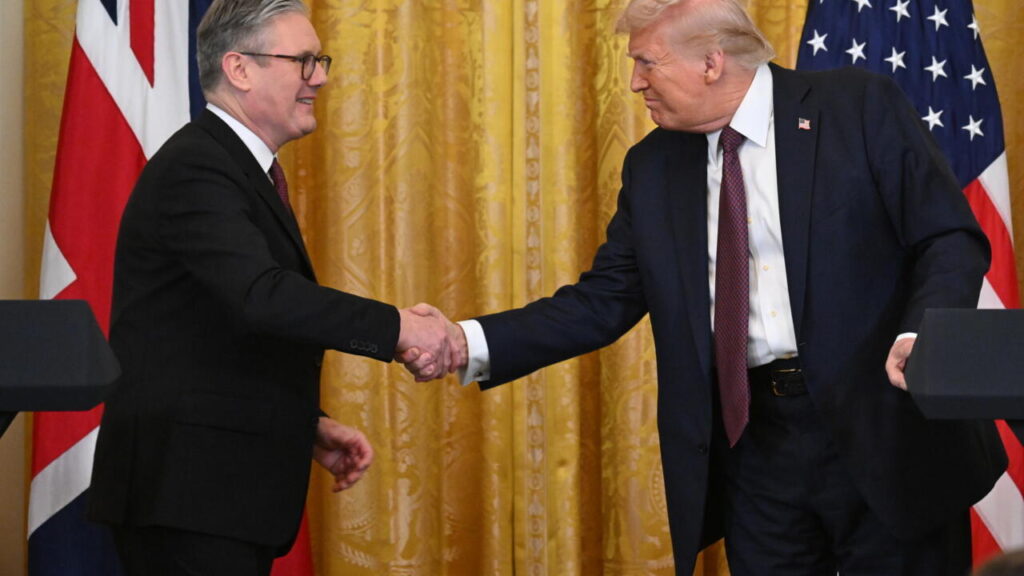
Donald Trump said Thursday that he trusts Russia’s Vladimir Putin to uphold any Ukraine ceasefire, while UK Prime Minister Keir Starmer sought security guarantees for Kyiv—sweetening his appeal with a royal invitation for Trump to visit Britain.
During their meeting in Washington, Trump struck a cordial tone with Starmer and even walked back a previous remark calling Ukrainian President Volodymyr Zelensky a “dictator,” responding with a joking, “Did I say that?” when questioned.
However, Trump contradicted Starmer’s warnings about the risks of a truce without US backing, asserting that he believed Putin would honor any agreement.
“I think he’ll keep his word,” Trump told reporters in the Oval Office. “I spoke to him, I’ve known him for a long time now, I don’t believe he’s going to violate his word.”
Starmer, who had warned en route to Washington that a ceasefire without a strong security framework would allow Putin to “wait and come again” at Kyiv, emphasized to Trump the importance of a lasting and enforceable peace deal.
A Royal Invitation & European Concerns
In a bid to court Trump, Starmer presented him with a letter from King Charles III, inviting him for a second state visit—a historic first for a US president.
“This has never happened before, this is unprecedented,” Starmer noted.
The invitation comes as European leaders grow increasingly uneasy over Trump’s stance on Ukraine, fearing he may prioritize Russian interests in any deal. Concerns escalated last week when Trump labeled Zelensky a “dictator without elections.” However, standing beside Starmer, Trump appeared to downplay the remark.
“Did I say that? I can’t believe I said that,” he quipped when asked if he stood by his statement. “Next question.”
Trump is set to meet Zelensky at the White House on Friday, where they are expected to sign a deal granting the US access to Ukraine’s rare minerals—something Trump has demanded as compensation for American military aid. However, the agreement reportedly lacks the security guarantees Zelensky had hoped for.
Europe Seeks US Backing, Trump Remains Reluctant
Starmer’s visit follows that of French President Emmanuel Macron, who left Washington with little to show for his efforts despite claiming progress in talks with Trump.
Britain and France have both signaled willingness to send peacekeeping troops to Ukraine but seek US assurances of intelligence, aerial surveillance, and potential air power.
A senior Trump administration official acknowledged that security assurances were a priority for European allies but emphasized that securing a ceasefire first was the main concern.
“The type of force depends very much on the political settlement that is made to end the war,” the official stated. “And I think that trade-off is part of what the leaders today are going to be discussing.”
Defense Spending as a Sweetener
Starmer positioned himself as a “bridge” between Trump and Europe on Ukraine, reinforcing the UK’s commitment by announcing an increase in defense spending.
A senior Trump administration official said they were “very pleased” with Starmer’s pledge to raise UK defense spending to 2.5% of GDP by 2027—a move likely aimed at aligning with Trump’s long-standing demand that Europe shoulder more responsibility for its own defense.
